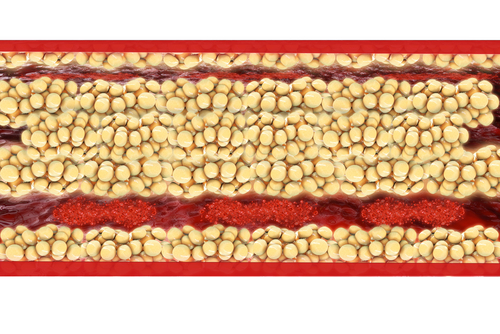 A new study entitled “Role of adiponectin and proinflammatory gene expression in adipose tissue chronic inflammation in women with metabolic syndrome” reports that a specific region of the visceral adipose tissue, the mesenteric adipose tissue, exhibits a higher proinflammatory profile in women with metabolic syndrome, therefore establishing that in women the adipose tissue proinflammatory properties is dependent on its localization. The study was published in the journal Diabetology & Metabolic Syndrome.
A new study entitled “Role of adiponectin and proinflammatory gene expression in adipose tissue chronic inflammation in women with metabolic syndrome” reports that a specific region of the visceral adipose tissue, the mesenteric adipose tissue, exhibits a higher proinflammatory profile in women with metabolic syndrome, therefore establishing that in women the adipose tissue proinflammatory properties is dependent on its localization. The study was published in the journal Diabetology & Metabolic Syndrome.
Metabolic syndrome is associated with other severe complications, such as visceral fat, insulin resistance and arterial hypertension culminating in systemic inflammation, cardiovascular diseases and thrombosis. The accumulation of adipose tissue is one of the characteristics of metabolic syndrome, with this tissue capable of producing and releasing inflammation mediators. However, visceral and subcutaneous adipocytes (also known as fat cells) can have differences in their inflammatory production profile. Additionally, fat distribution differs between men and women. In this study, the authors proposed to determine the differences in gene expression in two different areas of the visceral adipose tissue — the omental (which originates near the stomach and spleen) and mesenteric adipose tissue (more deeply buried depot surrounding the intestine) — and in the subcutaneous adipose tissue depots in women with metabolic syndrome.
Researchers studied different adipose tissue depots from 33 women patients with metabolic syndrome that were submitted to laparoscopic surgery. The enrolled patients were divided into two groups, according to their body mass index (BMI) – MS women had an average BMI of 45.6 ± 9.8 kg/m2, and the control group had an average BMI of 22.3 ± 3.7 kg/m2. The authors analyzed the expression of key inflammatory markers, including interleukin-6 (IL-6), tumor necrosis factor-α (TNF-α), nuclear factor kappa B (NF-κB), as well as the vascular endothelial growth factor A (VEGF-A) and the metabolic mediator adiponectin.
They found an increased expression of both IL-6 and TNF-α in the mesenteric adipose tissue of metabolic syndrome patients, when compared to their controls, but no differences were found in the same genes in the omental adipose tissue and subcutaneous adipose tissue. They could observe, however, significant positive correlations between the levels of IL-6 and the proportion of CD14 + cells in the peripheral blood (suggesting its increase is due to the highly proinflammatory profile of the adipose tissue); and between NF-κB and the levels of VEGF-A in the omental adipose tissue of metabolic syndrome patients.
The expression of adiponectin, a hormone exclusively release by adipose tissue which regulates several metabolic processes, including glucose regulation and thus contributing to improve insulin sensitivity, was significantly decreased in the omental adipose tissue in metabolic syndrome patients.
The authors highlight that their results establish a localization dependent profile of the proinfalmamatory properties of adipose tissue in women with metabolic syndrome, with the mesenteric adipose tissue being more proinflammatory than the omental adipose tissue, the latter exhibiting a decrease in adiponectin expression. Thus, the visceral adipose tissue has a higher contribution to chronic adipose tissue inflammation, than the other two adipose tissue regions, the omental and subcutaneous adipose tissue.


